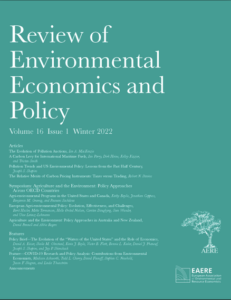Journal Article
Read

A Guide to Updating the US Government’s Social Cost of Carbon
Review of Environmental Economics and Policy
Published July 19, 2022
Read
While the exact costs of future climate change are uncertain, society must balance costs to our economy today with our best understanding of coming climate damages

Published July 19, 2022
Read

Published December 14, 2018
Read

Published August 18, 2017
Read

Published October 2, 2023
Read

Published May 5, 2017
Read